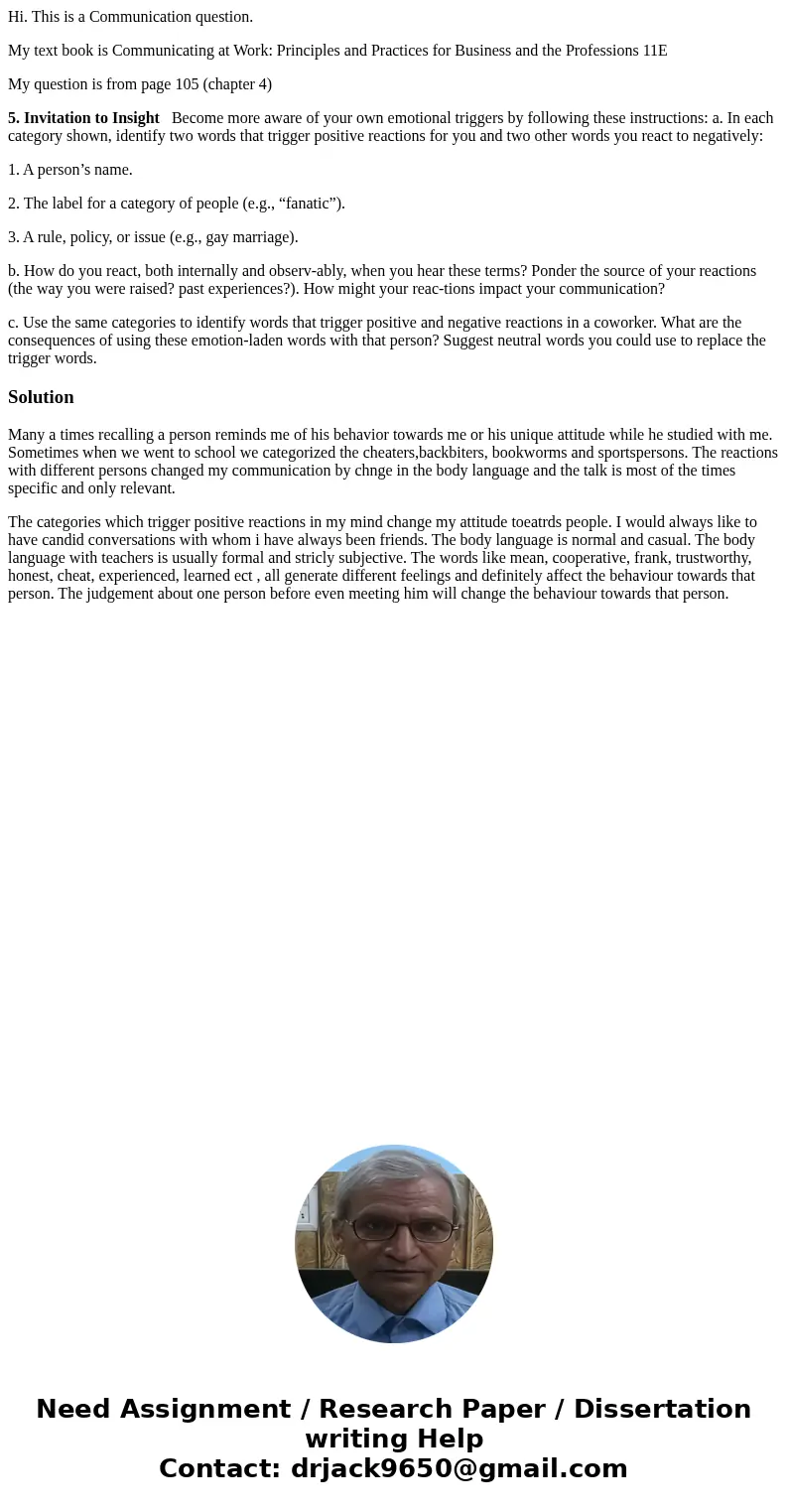Hi This is a Communication question My text book is Communic
Hi. This is a Communication question.
My text book is Communicating at Work: Principles and Practices for Business and the Professions 11E
My question is from page 105 (chapter 4)
5. Invitation to Insight Become more aware of your own emotional triggers by following these instructions: a. In each category shown, identify two words that trigger positive reactions for you and two other words you react to negatively:
1. A person’s name.
2. The label for a category of people (e.g., “fanatic”).
3. A rule, policy, or issue (e.g., gay marriage).
b. How do you react, both internally and observ-ably, when you hear these terms? Ponder the source of your reactions (the way you were raised? past experiences?). How might your reac-tions impact your communication?
c. Use the same categories to identify words that trigger positive and negative reactions in a coworker. What are the consequences of using these emotion-laden words with that person? Suggest neutral words you could use to replace the trigger words.
Solution
Many a times recalling a person reminds me of his behavior towards me or his unique attitude while he studied with me. Sometimes when we went to school we categorized the cheaters,backbiters, bookworms and sportspersons. The reactions with different persons changed my communication by chnge in the body language and the talk is most of the times specific and only relevant.
The categories which trigger positive reactions in my mind change my attitude toeatrds people. I would always like to have candid conversations with whom i have always been friends. The body language is normal and casual. The body language with teachers is usually formal and stricly subjective. The words like mean, cooperative, frank, trustworthy, honest, cheat, experienced, learned ect , all generate different feelings and definitely affect the behaviour towards that person. The judgement about one person before even meeting him will change the behaviour towards that person.

 Homework Sourse
Homework Sourse